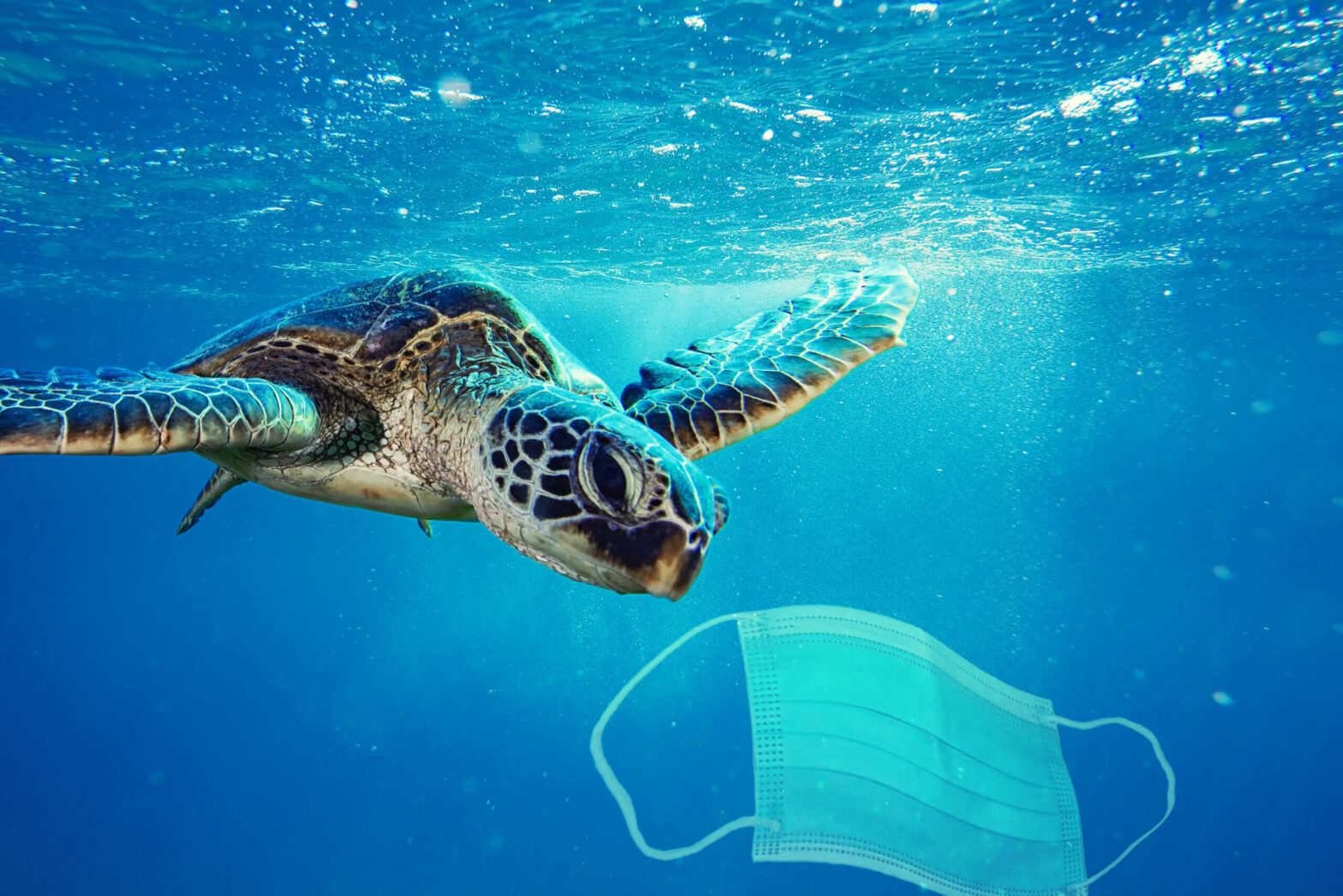Reusable masks: Keeping us and the environment healthy
Since the beginning of the Corona pandemic, 129 billion disposable masks have been used worldwide every month. As a result, the organisation OceansAsia estimates that in 2020, around 1.56 billion protective face masks will have found their way into the sea in addition to the ongoing amount of plastic waste. Also elsewhere face masks abundantly end up littered in the environment. Accumulating there, they pose an ecological threat.
Disposable masks are made of plastics such as polypropylene, which are only partially biodegradable. Thrown away carelessly, they remain in the environment for up to 450 years and release chemicals and plastic fibres into the atmosphere. As demonstrated impressively by the University of Leiden on covidlitter.com, mask littering threatens animals on land and in the water.
The World Health Organization recommends reusable masks
Masks are necessary. That is an undisputed fact. But our health also depends on the state of the planet, which we are currently putting under massive strain with our personal protective equipment (PPE). OceanCare therefore welcomes the recommendation of the World Health Organization that people who do not work in the healthcare sector or belong to a high-risk group should use standardised reusable masks. Certified protective textile masks are safe and eco-friendly when used and cleaned correctly.
OceanCare is raising public awareness of the issue of littering
Do you share our concern about the many masks that end up on the streets, in forests, alongside rivers and in the sea? OceanCare has launched a campaign to combat littering of disposable masks.
In our view, seeing the many disposable masks in the environment is intolerable. Since January 2021, we have been drawing attention to this phenomenon and raising awareness of the serious consequences of littering of disposable masks with the help of filler ads, posters and posts on social media. People who cannot or do not want to do without disposable masks or plastic gloves should at least use them responsibly and dispose of them correctly in the household waste.
The virus will probably be keeping us busy for some time to come. All the more reason for us to make an effort to curb the pandemic plastic waste it generates. When it comes to the health of the planet, we should all work closely together – even if we have to keep our distance physically.
